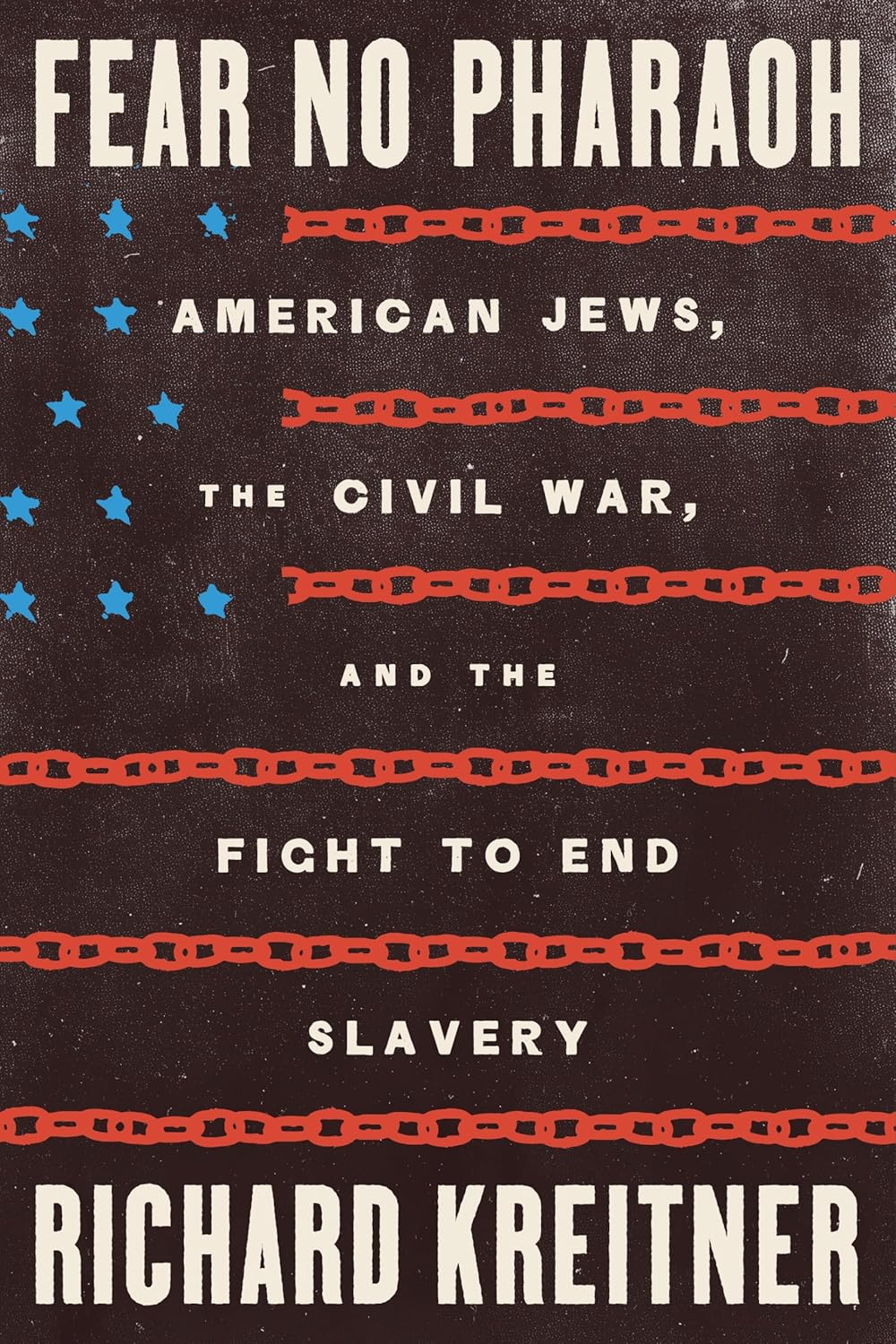Book Review: Fear No Pharaoh: American Jews, the Civil War, and the Fight to End Slavery

 Fear No Pharaoh: American Jews, the Civil War, and the Fight to End Slavery. By Richard Kreitner. New York: Farrar, Strauss and Giroux, 2025. Softcover, 379 pp. $21.00.
Fear No Pharaoh: American Jews, the Civil War, and the Fight to End Slavery. By Richard Kreitner. New York: Farrar, Strauss and Giroux, 2025. Softcover, 379 pp. $21.00.
Reviewed by Evan Portman
The legacies of two ancient traditions, Judaism and slavery, are at the heart of the American Civil War. That is precisely what Richard Kreitner argues in his book Fear No Pharaoh: American Jews, the Civil War, and the Fight to End Slavery. Kreitner traces the experience of American Jews in the years prior to and during the Civil War by examining the writings of six key figures: rabbis Morris Jacob Raphall and David Einhorn, “slavery defending traditionalist” Isaac Mayer Wise, radical abolitionist August Bondi, reformer and feminist Ernestine Rose, and Confederate Secretary of State Judah P. Benjamin.
Raphall and Einhorn represent opposite ends of the Jewish stance on American slavery. While traditional and conservative Raphall defended slavery, the Reform Jew Einhorn vehemently opposed it. Bondi, a disciple of John Brown, and Rose, a friend of Susan B. Anthony, champion the cause of abolition that Einhorn espoused to his congregation. Likewise, Wise represents a cabal who “wanted Jews to stay out of the controversy so as not to draw unwanted attention,” while the figure of Benjamin stands on behalf of American Jews who pledged their loyalties to the Confederacy. (7)
Central to Kreitner’s narrative is the Jewish relationship with slavery, both in nineteenth century America and in ancient times. One of the questions driving his research is how can a people shaped by their own enslavement be tolerant, at times, of the bondage of others? This confounding paradox is explored throughout the book as Jews struggled against (and sometimes submitted to) Anglo-Saxon dominance in America. Kreitner also addresses the treatment of Jews before, during, and after the Civil War. Grant’s infamous General Order No. 11, which exiled Jews from his military district, looms large over Kreitner’s narrative. He argues that, at first glance, “the South did not see the explosive rise of bigotry that Jews faced in the North.” (263) However, further analysis reveals a deep hatred for the Jewish religion throughout the Confederacy, as white southerners targeted “Jewish peddlers” who they perceived to be profiting from the war.
Fear No Pharoah effectively captures the intersection of religion and politics but also situates itself within the literature of immigration history. Kreitner argues that the book is the preface to the traditional narrative of American Judaism, which typically begins when Jews emigrated to the United States from Eastern Europe en masse in the late nineteenth and early twentieth centuries. Instead, Kreitner demonstrates that American Jews were already contemplating complex questions by the time the war began. He explains that “winding the clock back just a few decades shows a more complicated trajectory” of the American Jewish experience. (10)
Kreitner makes his historiographical position clear. His is the first comprehensive work on the history of American Jews before and during the Civil War. While other authors have addressed the intersection of Judaism and slavery in a smattering of articles and books, Kreitner argues that some scholarship on the subject is “irresponsible and inflammatory,” having been influenced by antisemitic propaganda. (9) He correctly asserts that much academic attention surrounds the complicated figure of Judah P. Benjamin. Kreitner acknowledges Benjamin but also decentralizes him from the narrative by elevating the voices of other nineteenth century American Jews.
Overall, Kreitner presents a compelling dichotomy between American Jews of the nineteenth century and the ancient Israelites. He also balances a discussion of well-known characters like Judah P. Benjamin while also excavating little known figures like Einhorn, Bondi, and Rose. Therefore, this volume represents a valuable addition to a growing collection of religious histories of the Civil War.
very interesting and informative topic and review